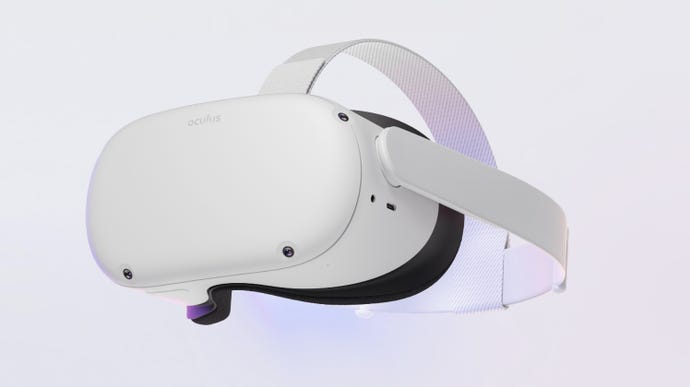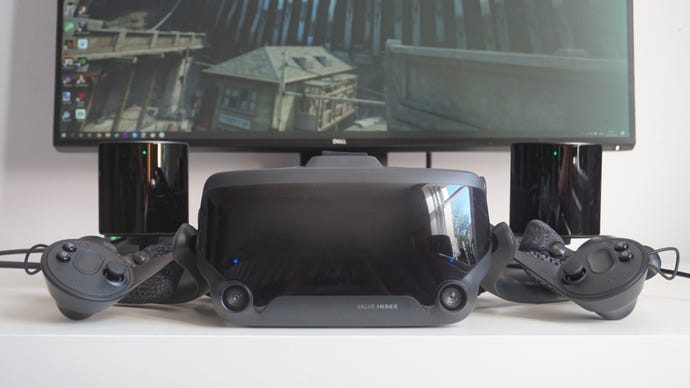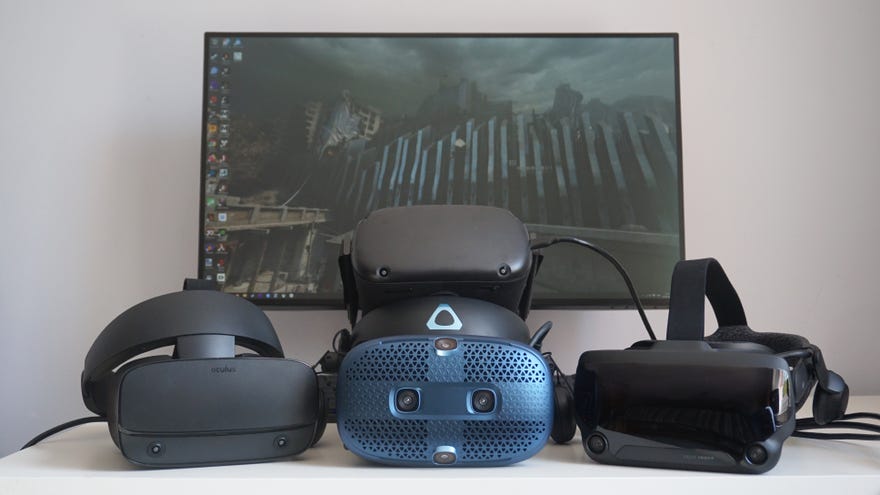Best VR headsets 2023: the best virtual reality headsets for PC
Virtual reality check
Apparently there’s something called a "PS VR2" out at the moment, but since it doesn’t work on PC, we can assume it’s useless and/or used by scoundrels. Unlike these, the best PC VR headsets: the finest virtual reality kits we’ve tested, ready for Half-Life: Alyx or Beat Saber or whatever else you want to play with the feeling that you’re really there. Without the mortal danger. Presumably.
Granted, great VR headsets don’t come along all that often. While it can feel like there’s a new best SSD or best gaming keyboard contender every other month, recently the VR industry has been trending towards ghastly metaverse nonsense. The best headsets for PC gaming right now are therefore a few years old and, let's be honest, not exacly overwhelming in number. They still stand up, though, especially the Valve Index and its best-in-class finger tracking.
What’s more, there are signs that headset manufacturers may be turning their own heads back towards gaming use. The HTC Vive XR Elite is an intriguing new wireless headset that can switch between a lightweight glasses mode, for portable VR, and a more traditional configuration for fully-fledged PC VR. It’ll be expensive, though.
For now, you can find our picks of the best VR headsets laid out below. We’ve also got a handy list of the best VR games, if you need some inspiration on what to play on them, and don’t miss Rick Lane’s monthly Reality Bytes column for regular updates on VR rumblings.
Best VR headsets 2023
- Meta Quest 2 - the best cheap VR headset for PC
- Valve Index - the best VR headset for PC overall
Meta Quest 2
The best cheap VR headset for PC

The original Oculus Quest showed how much more enjoyable VR can be when you're not tripping over several heavy cables that also happen to be dangling from your head. The Ocu- oop, sorry, forgot the rebrand - the Meta Quest 2 took the concept and made it even better, with a much more lightweight and comfortable chassis and a sharper, clearer display. Somehow, it launched at a lower price than the Quest as well, making it a fine low-cost choice with appeal that endures today.
The Quest 2 uses inside-out tracking, meaning all the trackers are built into the headset and controllers rather than spread across base stations. It's less accurate than external tracking but does mean you don't need to scramble around finding extra plug sockets, or configure your room in a special way to accommodate any external trackers in order to do full room-scale VR. Its inside-out tracking is also noticeably better than what you get on the HTC Vive Cosmos; the only big drawback is that you need a Facebook/Meta account to use it.
Read more in our Meta Quest 2 review
Valve Index
The best VR headset for PC overall

For those who want the best VR experience that money (a lot of it) can buy, then the Valve Index is the one to go for. Perhaps you've had a VR headset previously and are looking to upgrade, or maybe you've just got buckets of cash and want in at the very top of the VR food chain from the word go. Either way, it really doesn't get much better than the Valve Index.
Its key advantages over cheaper headsets, including the Meta Quest 2, include higher refresh rate options (all the way up to 144Hz), a wider field of view, and absolutely stunning built-in headphones. The speakers and earpieces on other headsets are often fine, but the Index's off-ear headphones are something else entirely, offering a rich, full-bodied sound that really heightens your sense of immersion.
You'll need a pretty powerful PC in order to take advantage of the Index's higher refresh rates, of course, but even if you don't have a super-powered PC right now, it does at least give the headset room for improvement when you next come to upgrade.
Of course, you don't strictly need to spend almost a grand to get a great VR headset, and for most people the Quest 2 will serve just fine. However, if you've got the space and the cash, and want the absolute bestest best VR headset on the market, then the Valve Index is a much better buy than both the Quest 2 and the HTC Vive Cosmos Elite.
Read more in our Valve Index review
What PC specs do I need for a VR headset?
If you're buying a VR headset for PC gaming, then you're going to need to make sure your rig is powerful enough to run it. Thankfully, the minimum requirements for most of today's best VR headsets are pretty low, so you shouldn't have much trouble getting your VR headset up and running if you've recently upgraded your PC. For the full list of minimum requirements, have a read of the table below.
| Minimum PC requirements | Valve Index | Meta Quest 2 | HTC Vive / Vive Pro / Vive Cosmos | Windows Mixed Reality headsets |
|---|---|---|---|---|
| OS: | Windows 10 / 11, SteamOS, Linux | Windows 10 / 11 | Windows 7-11 | Windows 10 / 11 |
| CPU: | Dual-core with hyperthreading | Intel Core i5-4590 / AMD Ryzen 5 1500X | Intel Core i5-4590 / AMD FX 8350 | Intel Core i5-4590 / AMD Ryzen 5 1400 |
| RAM: | 8GB | 8GB | 4GB | 8GB |
| GPU: | Nvidia GeForce GTX 970 / AMD Radeon RX 480 | Nvidia GeForce GTX 970 / AMD Radeon 400 series | Nvidia GeForce GTX 970 / AMD Radeon R9 290 | Nvidia GeForce GTX 1060 / AMD Radeon RX 470 |
| USB: | 3.0+ | USB-C | 3.0+ | 3.0, USB-C |
| Output: | DisplayPort (HDMI not supported) | USB-C (Link Cable), Wi-Fi (Air Link) | DisplayPort (Cosmos) / HDMI (Vive / Vive Pro) | HDMI, DisplayPort |










